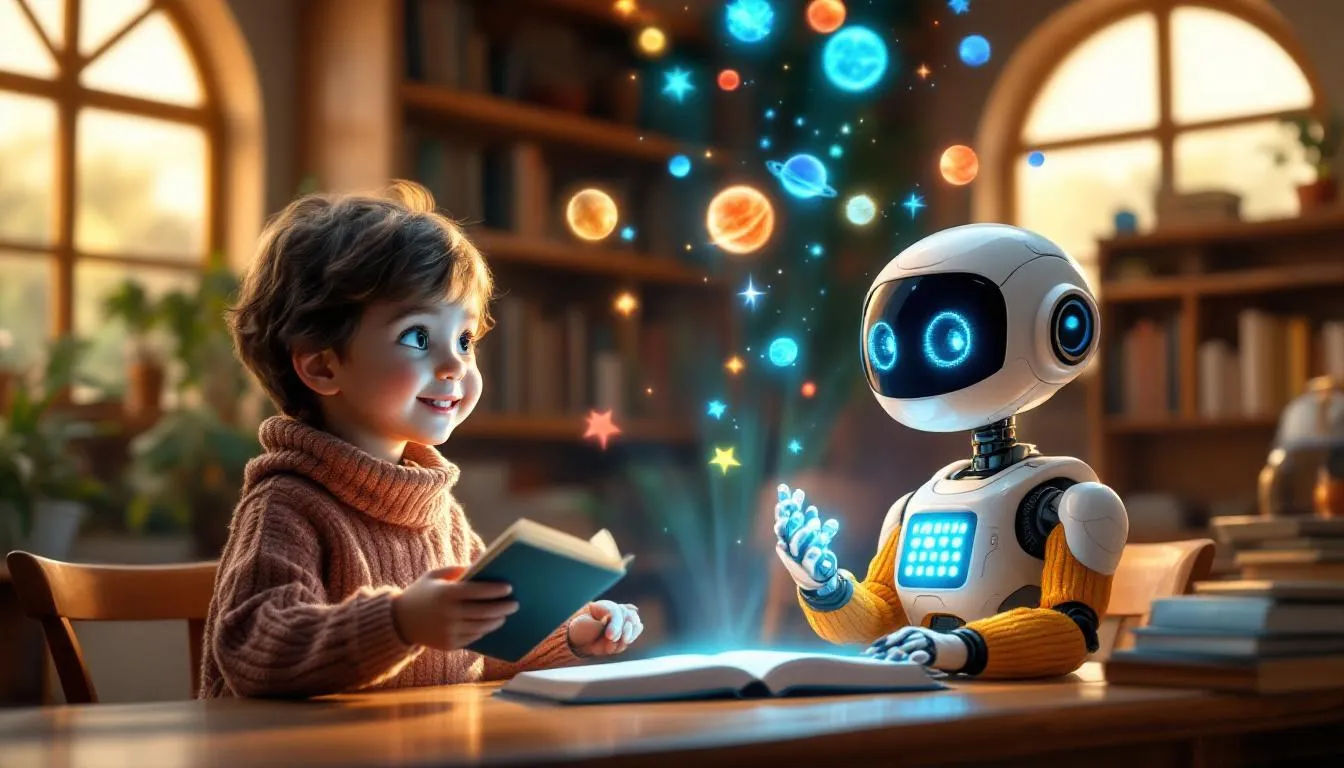Table of Contents
Introduction to “Love You Forever”
“Love You Forever,” written by Robert Munsch, tells the tender story of a mother’s unwavering love for her son as he grows from a baby to a man. Each life stage is marked by a heartfelt lullaby, reinforcing their enduring bond. When it first hit the shelves in 1986, the book struck a chord with readers. I remember picking it up and feeling a wave of nostalgia wash over me. Its simple yet profound message quickly turned it into a beloved classic. As we delve deeper into its pages, it’s clear why this book resonates so deeply with readers.
Emotional Impact on Readers
When I first read “Love You Forever,” I was a new parent, full of hopes and a little anxiety about the journey ahead. I recall sitting on the living room floor with my baby in my arms, flipping through its pages and suddenly feeling a lump in my throat. The universal themes of love and loss struck a chord with me, as they do with many others. Its depiction of a parent’s unconditional love, even through the trials of growing up, resonates deeply with anyone who has ever cared for a child. This profound emotional resonance is perhaps best understood by exploring The Profound Origin Story of “Love You Forever”, which delves into the author’s personal inspiration.
I’ve heard countless stories from friends who can’t make it through the book without shedding a tear. One friend shared how she read it to her son every night until she couldn’t get through the last page without crying. The book became a cherished part of their bedtime routine, a symbol of their bond. Another parent told me how the book prompted a heartfelt conversation with their teenager about the ups and downs of their relationship and how they always found their way back to love.
“Love You Forever” is more than just a story. It’s an emotional journey that mirrors the real-life ebb and flow of parent-child relationships. For many, it serves as a reminder that love can endure through life’s challenges and changes. This book has an uncanny ability to tap into the emotions we sometimes tuck away in our busy lives, drawing them to the surface with its gentle narrative.
The emotional depth of this simple picture book prompts reflection on our own experiences and relationships. This is something that keeps readers coming back, generation after generation. In exploring these emotions, we find not just tears but a sense of connection to our own past and the stories that shaped us.
Nostalgia and Its Power
Nostalgia has an incredible power to transport us back to simpler times, evoking emotions we thought were long tucked away. “Love You Forever” taps into this beautifully. The gentle repetition of the mother’s lullaby is like a melody from our own childhood, sweet and familiar.
I remember my own mom reading stories to me, her voice a comforting soundtrack to my bedtime. Those moments are etched in my memory, and every time I read “Love You Forever,” I feel a connection not only to my own children but also to the child I once was. It’s like the book is whispering, “Remember those safe, warm moments?”
As adults, our perceptions of stories often shift, colored by the wisdom and experiences we’ve gathered along the way. Childhood memories, with their simplicity and innocence, often resurface when we read books like this. I often find myself looking at my kids, seeing reflections of my younger self, and experiencing a mix of joy and nostalgia.
This book’s ability to evoke such strong emotions is part of its charm, reminding us of the love we received and the love we now give. It’s a full-circle moment—a bridge between the past and the present. Not everyone feels this warmth, though, and it’s interesting to see how varied reactions can be.
Controversial Aspects of the Book
While “Love You Forever” is cherished for its emotional depth, it hasn’t escaped criticism. Some readers feel the book leans heavily into sentimentality, occasionally crossing into territory that’s too syrupy for their taste. I remember a book club meeting where this very debate unfolded. One member argued that the book’s repetitive lullaby felt manipulative, designed to squeeze tears out of even the most stoic reader. Another chimed in, saying it reminded them too much of a Hallmark movie, more sugar than substance.
Yet, others see this sentimentality as the book’s strength. Its simplicity mirrors the profound truths of life. The repetitive lullaby, to many, is a comforting mantra that speaks to the unwavering nature of a parent’s love—a reminder that love, in its truest form, doesn’t need to be complex to be powerful.
Another layer of controversy comes from the book’s portrayal of life and death. The cyclical nature of the story, where the son eventually cares for his aging mother, resonates deeply with some, while others find it unsettling. As a parent, I’ve pondered this aspect with mixed feelings. The inevitability of life’s cycle is a poignant reminder that our roles shift over time—a truth that’s both beautiful and bittersweet.
In discussions with friends, some expressed discomfort with the depiction of aging and death, feeling it was too intense for a children’s book. Others appreciated its honesty, valuing the opportunity to introduce these concepts gently to their kids.
These varied interpretations open the door for broader discussions on how different readers connect with the story.
Diverse Reader Reactions
One of the most fascinating aspects of “Love You Forever” is the diverse reactions it elicits from readers. For many parents, the book serves as a bonding experience. I remember one weekend, our family was huddled on the couch, and my partner and I took turns reading it aloud. As my voice wavered through the familiar lullaby, I noticed our kids looking up at us, their eyes wide with curiosity and empathy. These shared moments weave the fabric of family life, creating a tapestry of love and understanding.
Children, with their uniquely candid perspective, often surprise us with their responses. After reading the book to my daughter, she turned to me and asked, “Mom, will you always sing to me like that?” Her innocent question opened a door to a conversation about love and change and how, even as things shift, some connections remain unbreakable. Kids might not grasp every nuance of the story, but they sense its core message—love that transcends time and space.
Cultural interpretations add another layer to the book’s reception. In some cultures, the cyclical nature of caring for aging parents is a deeply ingrained tradition, making the story resonate profoundly. For others, the portrayal of such themes might feel unfamiliar or evoke different emotions. It’s intriguing how a single book can cross cultural boundaries, yet still be interpreted through the lens of personal experiences and societal norms.
As we think about how “Love You Forever” touches lives across the globe, we begin to see its role not just as a story but as a piece of cultural fabric in its own right.
The Book’s Legacy and Influence
In the world of children’s literature, “Love You Forever” has left an indelible mark, inspiring countless authors and creators to explore themes of familial love and connection. I once attended a writing workshop where an author shared how Munsch’s book motivated them to write their own story about a father’s bond with his daughter. They wanted to capture that same emotional depth and timeless quality, hoping to touch hearts as Munsch did. This book has set a high bar for emotional storytelling, encouraging writers to delve into the complexities of love and life.
In terms of its historical significance, “Love You Forever” holds a cherished spot on the shelves of children’s literature. It broke the mold in 1986, presenting a narrative that was both poignant and accessible to young readers. Its ability to convey profound emotions through simple language and illustrations has made it a staple in many households and classrooms. I vividly recall my own grade school library, where the book was a perennial favorite, often checked out and lovingly thumbed through by generations of students. Its influence is evident in the way it continues to be a go-to gift for new parents and a frequent feature in thematic units about family and love in schools.
The legacy of “Love You Forever” is not just in the numbers of copies sold or the awards it has garnered. It’s in the hearts it has touched and the conversations it has sparked about love’s enduring power. As we look to the future of children’s literature, it remains a reminder of the impact a simple story can have. This exploration of its legacy naturally leads us to consider the lessons it imparts and the lasting impressions it leaves on both young and old readers alike.
Conclusion
“Love You Forever” continues to be a touchstone for emotional storytelling, offering a poignant reminder of the enduring nature of parental love. Its ability to evoke deep-seated feelings of nostalgia and connection underscores its status as a heart-wrenching classic. Whether you’re a parent, child, or someone reflecting on life’s cyclical journey, this book invites you to embrace love’s powerful simplicity. Why not revisit this classic or share it with a loved one? Let its melody of love remind you of the bonds that shape us, inviting us all to cherish and nurture the connections we hold dear.







